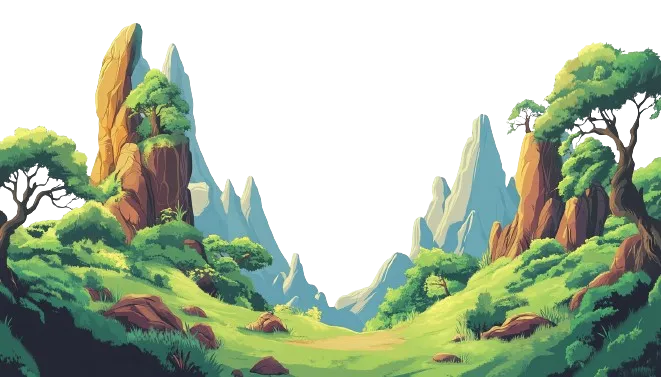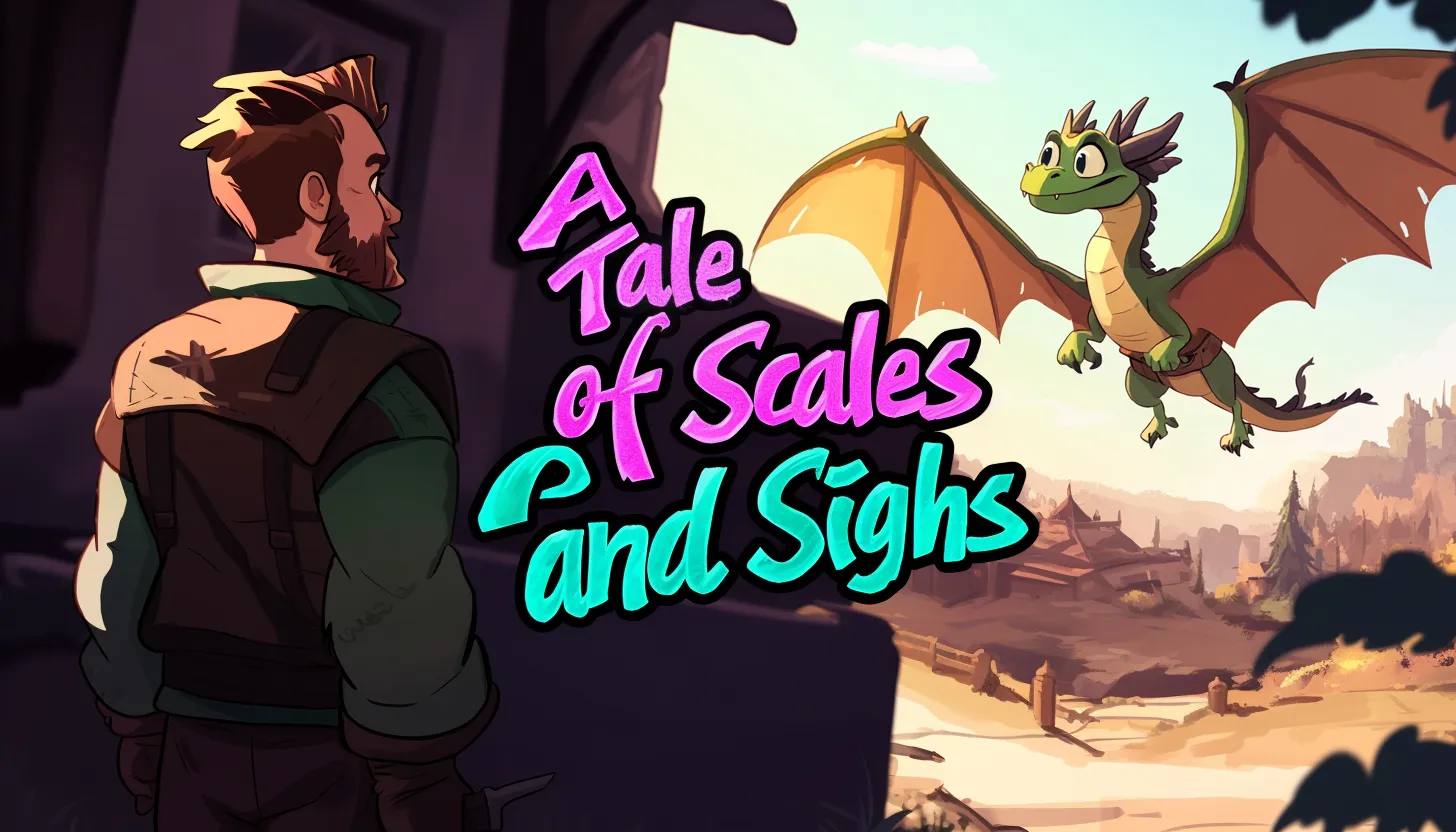In a distant kingdom, hidden among mountains that seemed to sigh instead of roar, lived a dragon tamer named Torfin Brightsky. Torfin was famous, though not by choice. Everyone thought his job was the definition of adventure: living among giant creatures, training them to dive through the air, making them breathe fire in the skies—everything the legends and tavern stories claimed dragon tamers did. But the reality, for Torfin, was much less exciting.
Every day started the same. At dawn, as the first rays of sunlight touched the scales of the mountains, Torfin would walk to the barn where his dragons slept. There rested the most magnificent creatures in the kingdom: Sarlak, a dragon as green as a meadow after the rain, with amber eyes; Broggan, slate-colored and with a breath that curiously smelled like freshly baked cookies; and Kivra, with blue scales whose roars echoed as if the mountains themselves were yawning. But what the stories didn’t tell was that dragons, those mighty beasts, were incredibly… lazy.
Torfin spent most of his time cleaning Sarlak’s scales, as the dragon had a habit of scratching his belly against the rocks, digging up piles of dust and brightly colored little bugs. Taming a dragon, it turned out, wasn’t filled with explosions and daring flights. Instead, it was an endless routine of feeding, cleaning, and trying to keep the giant creatures from getting so bored that they might fry a city just for fun.
The reality of his work was nothing like the heroic songs people sang in the markets. Sarlak, despite his reputation as the terror of the skies, preferred to spend most of his day napping under the sun, curled up like a giant snake, his huge eyes half-closed, fading into a deep calm. The villagers watched him from afar, marveling at his size, his majesty. What they didn’t know was that by afternoon, Sarlak rarely showed any interest in flying. The most exciting thing he did was let out a puff of smoke when he occasionally had an upset stomach.
Meanwhile, Torfin faced the daily grind of feeding the dragons the exact amounts of roasted meat, and sometimes fish—because, apparently, Broggan had very refined tastes—brushing their scales to keep them shiny, and cleaning up the enormous puddles of dragon drool they left behind while they slept. Anyone watching from afar would think he lived a dream life, surrounded by legendary creatures, powerful and full of mystery. However, the biggest mystery to Torfin was how to get Sarlak to fly more than three times a week.
On the rare occasions he managed to get one of the dragons to fly, the acrobatics were mostly accidental. The landings—if you could call them that—usually ended in a cloud of dust and tangled tails. Sarlak, the oldest of them all, had the amusing habit of landing on his backside, as if his wings, as impressive as they were, weren’t designed for such stunts.
The other dragons weren’t much better. Kivra, for example, liked to spend afternoons at the edge of the cliff, gazing solemnly at the horizon as if pondering the great mysteries of the universe. But Torfin suspected that the only thing on her mind was when the next meal would be. And Broggan, well, he had an odd love for smooth stones. He collected them as if they were tiny treasures and spent hours organizing them by size. No one had ever told Broggan that dragons weren’t known for their organizational skills.
As time passed, Torfin noticed a pattern: the more he tried to impose his will on the dragons, the more stubborn they became. Attempts to teach them flying routines ended with the dragons yawning enormously, puffing little clouds of smoke from their noses. Commands to breathe fire resulted in nothing but sneezes. Though frustrated, Torfin couldn’t help but admire the creatures’ indifference to anything that didn’t immediately interest them.
And yet, despite it all, the kingdom still thought his job was the most amazing in the world. Children looked at him with wide-eyed wonder whenever he walked his dragons near the villages, oblivious to the fact that these walks were slower than an old ox-drawn cart. Stories of Torfin and his band of dragons spread far and wide, filled with exaggerated details of nonexistent battles with other mythical beasts or epic flights over the most distant lands.
But while everyone dreamed of his adventurous life, Torfin was stuck in a daily routine of trying to stir the slightest bit of enthusiasm from his winged companions. Every night, he sat on the cliff's edge, looking up at the stars and wondering if the dragons would ever become like the ones from the legends: fearless and fierce, breathing fire on command and flying like the wind. But the only answer he ever got was the soft snoring of Sarlak, who had already found the perfect rock for his nightly nap.
Time went on, and though the frustration lingered, Torfin began to understand something important. Dragons weren’t creatures to be tamed or controlled; they were simply themselves. Their greatness didn’t lie in what they could do, but in what they were: lazy giants with a deep sense of calm and an admirable ability to ignore anything that didn’t interest them. They were creatures who lived in the present in a way he could never fully understand. For them, flying or breathing fire wasn’t what mattered. What truly mattered was enjoying the sun on their scales, the comfort of a well-chosen rock, and the occasional pleasure of a good meal.
And so, Torfin found a strange kind of peace in his boring routine. He no longer tried to force the dragons to do things they didn’t want to. Instead, he sat with them in the afternoons, gazing at the horizon like Kivra or searching for smooth stones for Broggan. In those moments, he learned to see the world through the eyes of the dragons: a place where great adventures could wait, because the most important things were already happening.




